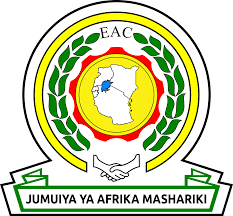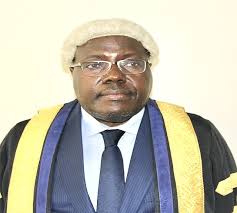Overview

- Act: East African Community Act, 2000
- Formed: 2001
- Speaker: Rt Hon Joseph Ntakirutimana
- X (Twitter)
The East African Legislative Assembly (EALA) is the legislative body of the East African Community (EAC), established under the Treaty for the Establishment of the EAC. It began operations on November 30, 2001. EALA’s primary function is to make laws for the EAC, promote regional integration, and ensure the implementation of policies adopted by the Summit and Council of Ministers. The Assembly consists of elected representatives from each partner state. EALA plays a crucial role in shaping legislation, overseeing the work of EAC institutions, and facilitating collaboration across the region.
Speaker: Rt Hon Joseph Ntakirutimana
Rt Hon Joseph Ntakirutimana is the Speaker of the East African Legislative Assembly (EALA). He was elected to this position on December 20, 2022, representing Burundi. Prior to his election, he served as the Deputy
Secretary-General of the East African Community (EAC) in charge of Customs, Trade, and Monetary Affairs.

Management Team

Alex Obtre Lumumba
Clerk East African Legislative Assembly
Functions
- Lawmaking: Enacts laws for the East African Community (EAC) to promote regional integration and cooperation among partner states.
- Policy Oversight: Oversees and scrutinizes policies and programs implemented by EAC institutions to ensure alignment with regional objectives.
- Representation: Represents the citizens of the partner states in the legislative process, ensuring diverse interests are reflected in EAC legislation.
- Budget Approval: Approves the budget of the East African Community, ensuring proper allocation of resources.
- Debating Regional Issues: Debates key issues affecting regional integration, such as trade, infrastructure, and economic cooperation.
- Recommendations to the Summit: Provides recommendations to the EAC Summit and Council of Ministers on matters related to regional policies and programs.
- Monitoring EAC Institutions: Monitors the implementation of decisions made by the Summit and the Council of Ministers.
- Advocacy for Integration: Advocates for deeper political, economic, and social integration among EAC member states.
- Engaging with Stakeholders: Engages with regional stakeholders, including civil society and the private sector, to ensure broad participation in the integration process.
- Promoting Accountability: Ensures transparency, accountability, and the effective use of resources within EAC institutions and programs.
Important Links
Address & Contacts
- EAC Headquarters, EALA Wing, Afrika Mashariki Road / EAC Close
- P. O Box 1096, Arusha, Tanzania.
- eala@eachq.org
- +255-768885633